Koker Nag : The cradle of crystal springs
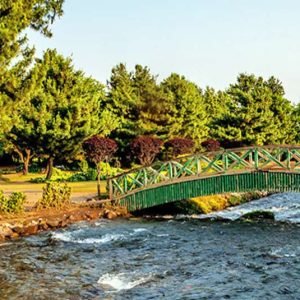
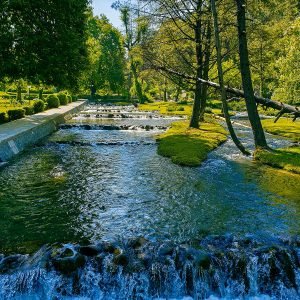
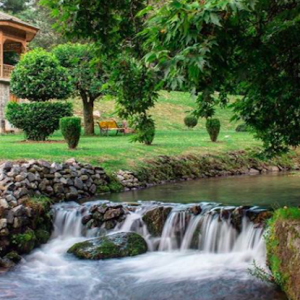
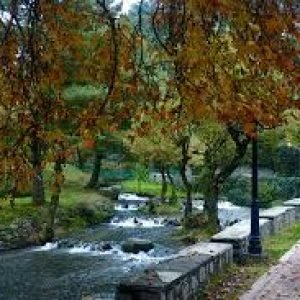
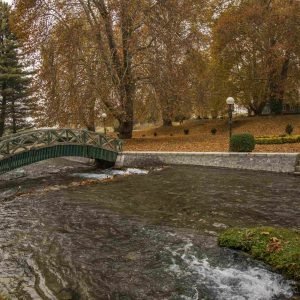
Table of Contents
Toggle1. Introduction
Koker Nag is a fascinating place located in the Anantnag district of Jammu & Kashmir. It provides an aesthetic amalgamation of beautiful calmness, soothing springs, verdant meadows, and breath-taking gardens.
This would be the perfect place with an ideal combination of scenic beauty and the quietness of an environment at an elevation of 2,020 meters. Pristine springs, trout fish farms, and voluminous Kokernag Botanical Garden make this a perfect haven for nature lovers, adventure seekers, or just plain retreat-goers.
Learn about this region by every inch of travel towards Koker Nag- from its history to attractions, activities, places to stay, and travel tips.
2. History
The name “Koker Nag” is coined from two words: “Koker,” meaning chicken, and “Nag,” meaning spring in the local Kashmiri language. The shape was therefore attributed to its principal spring by the locals who said that it resembled the claws of a chicken. Koker Nag was an important location for the Mughals during their rule in India. The region was their summer retreat, and they were captivated by its natural beauty as well as its abundant water sources.
The healing springs of Kokernag are also said to have healing properties, besides their mineral-enriched water content making the environment valuable. As according to popular beliefs the spring water from here can heal digestive disorders, hence, it had always been a prime destination for the people to come seek refuge and get healed.
3. Location and Geography
Koker Nag is a 80 km southeast of Srinagar, the summer capital of Jammu & Kashmir. Encircled by the Pir Panjal mountain range, the town is situated in the Anantnag district. Pleasant during summers, the place is characterized by snow-capped peaks in winter. The region falls in the lower Himalayas and has a landscape of forested hills, meadows and small streams.
4. Best time to visit
The best time to visit depends on the kind of experience you’re seeking.
4.a. Summer (April to June): This is a correct time to visit Kokernag. The weather is cool and the temperature remains pleasant between 15°C to 25°C. Gardens are in full bloom, and one could see patches of green behind the lush green canopies and amazing colors of flowers that present it as heaven for nature lovers and photographers alike.
4.b. Monsoon (July to September): Though Kokernag gets moderate rains, the landscape beauty enhances during the monsoon season. Fresh water is overflowing from springs, and the surroundings appear green and vibrant. Traveling around in the rainy season proves somewhat difficult and becomes critical at times due to occasional landslides in the region.
4.c. Autumn (October to November): The Koker Nag becomes a golden spectacle during autumn. It’s breathtaking, just the foliage-it is unbeatable. There’s no cool wind or uninviting chill. It’s warm and salubrious.
4.d. Winter (December to March): This is the period of heavy fall of snow, and the region remains under a thick cover of white sheets. In winter, the temperature might drop, but the serenity of the snow-clad mountains and frozen springs is very interesting for the tourists who wish to spend peaceful time in a place under the white sheet of the snow.
5. How to Reach
5.a. By Air: The nearest airport is Sheikh ul-Alam International Airport of Srinagar, which is approximately 80 km from Koker Nag. From the airport you could hire taxi or board bus for the travel to Koker Nag. It takes 2-3 hours depending on traffic and road conditions.
5.b. By Train: The nearest railway station is at Anantnag which is about 25 km from Koker Nag. Anantnag is well connected by train with cities like Jammu and Jammu has rail links with various other cities in India. From Anantnag, you can hire a taxi or take a bus for Koker Nag.
5.c. By Road: The road link to Koker Nag is good as connected with Srinagar, Jammu, and other cities. Regular bus services are available from Srinagar to Anantnag, and cabs to Koker Nag could easily be found. Even the road journey from Srinagar to Koker Nag cuts through the most beautiful sceneries of the Valley of Kashmir and Pir Panjal range, so magnificent.
6. Attractions
6.a. Koker Nag Botanical Garden
One of the main attractions of Koker Nag is its vast botanical garden covering 26 hectares. This garden is pretty and wellkept with many varieties of rare plants, colorful flowers, and well manicured lawns.
The rich greenery, terraced flowerbeds and pathways create a quiet place for relaxation or strolling leisurely in solitude. One can even enjoy picnicking in this picture perfect landscape while imbuing tranquility in the serene ambiance.
6.b. Koker Nag Spring
The famous natural spring at Koker Nag is remarkable for its medicinal properties and crystal-clear water. It is the largest freshwater spring in Kashmir. The water is divided into several channels which are in the form of claws like those of a chicken, from where the name goes. The cool and refreshing water from the spring has been enjoyed by locals as well as tourists who visit here to drink or fill their bottles to take some back home.
6.c. Trout Fishery
The other place of interest is the Koker Nag Trout Hatchery. This is one of the largest trout fisheries in the region and it is highlighted for breeding high-quality trout fish. One can visit the hatchery, see how the breeding of the fish is taking place, and even catch his own trout. Fresh trout from Koker Nag is a delicacy. There are several local restaurants serving mouth-watering trout dishes which should be tried by those who love sea food.
6.d. Mughal Gardens
Koker Nag features Mughal garden characteristics, making it one of the proud signatures of Kashmir’s excellent history. Designed gardens, fountains, and layered lawns indicate the Mughal attraction towards nature and their excellence in garden design. Chinar lined cascading water channels create a beautiful setting where visitors can sit back and enjoy the cool mountain breeze.
6.e. Achabal Gardens
Achabal Gardens located 20 km from Kokernag is another Mughal garden you must see. It was built by Nur Jahan, wife of Emperor Jahangir. The beauty of these gardens is pretty much Mughal, complete with terraced lawns and lots of chinar trees, water fountains and a natural spring feeds the water channels.
7. Adventure Activities in Koker Nag
The thrill-seeker and nature lovers can also enjoy a number of adventure activities within the Koker Nag, including:
7.a. Trekking
Treks are carried out from Koker Nag as a base camp in the region. The treks around the Pir Panjal range vary from moderate to difficult in nature. The most popular among these include:
i. Koker Nag to Daksum: It is a one-day trek that goes through all the scenic meadows, pine forests, and other small streams leading on to wide panoramic views of the valley
ii. Koker Nag to Sinthan Top: For those looking for a tough trek, there exists Sinthan Top at 3,748m. There are stunning views from here of both divisions of Kashmir and Jammu.
7.b. Camping
Koker Nag can be an ideal location for camping, and the location is even more breathtaking during the summers. The meads and the hill forest all together present a scenic picture of camping out amidst the night sky. There are camps at various locations within and around Kokernag; many travel operators provide campsites, guides, bonfires, and Kashmiri local food.
7.c. Trout Fishing
Kokernag can be the most ideal destination for fishing enthusiasts. The trout fishery and other nearby streams are teeming with fish. You can rent fishing equipment at local stores, you can catch a day of trout in the crystal clear waters of Koker Nag‘s streams.
7.d. Paragliding
Though not popularly followed like trekking and camping, paragliding has slowly picked up in Kokernag. The vast open space along with all its scenery makes the location perfect for paragliding with an aerial view of the landscape below.
8. Stays
Kokernag offers diverse accommodations to suit all types and budgets from luxurious hotels to budgeted guesthouses:
8.a. J&K Tourism Guest House
One of the major tourist attractions for anyone visiting Koker Nag is the government-owned J&K Tourism Guest House. It has simple comfortable rooms, and also not very far from the magnificent Koker Nag Garden and the sightseeing places.
8.b. Private Guest Houses and Homestays
For a more personalized experience, there are several private guest houses and homestays in Koker Nag. These places are mostly run by local families and would give you an opportunity to understand and experience traditional Kashmiri hospitality. There is always the availability of homely, home-cooked meals, comfortable rooms, and peaceful surroundings.
8.c. Camping Options
There are a lot of adventurous activities in and around Koker Nag that can be undertaken by adventure lovers. There are many tour operators and local guides providing trekking with camping facilities at picturesque places near the trout streams and meadows.
9. Local Cuisine
There are a number of local dishes in Koker Nag that reflect the richness of Kashmiri culture. Some such local dishes include:
9.a. Rogan Josh: Rogan Josh is a scrumptious dish prepared from the slow-cooked lamb that is fried in several spices.
9.b. Kashmiri Pulao: A rice dish infused with saffron, topped with dry fruits like almonds and raisins.
9.c. Fresh trout that is prepared either grilled or fried.
9.d. Other dishes can also be found in local restaurants and dhabas around the town, in order to fully enjoy the unique flavors of Kashmir.
10. Shopping
Though Koker Nag is not exactly a marketing hub like Srinagar, you can gather some local handicrafts and products as souvenirs. Some of the more popular items include
10.a. Pashmina Shawls: The softness and warmth of handwoven Pashmina shawls make it a famous product for Kashmiris.
10.b. Kashmiri Carpets: Intricately woven with traditional designs are the carpets of the region.
10.c. Walnuts and Saffron: Kokernag achieves fame due to its excellent quality saffron and walnuts as presents.
In case you are interested in purchasing the products, some local shops are available in town. Alternatively, you can visit the nearby Anantnag town, where you will have a wider variety to select from.
11. Tourist Tips
11.a. Warm Clothing: Though you are visiting in summer, temperature still drops at night times, so it’s always recommended to carry a light jacket or shawl.
11.b. Permission Permits: If you are planning to trek or visit any remote areas adjacent to the Jammu-Kashmir border, you would need special permits. Better to check the concerned local authority or your travel agent beforehand.
11.c. Respect Local Customs: Kashmir is a conservative region, and it’s very important to dress modestly and respect local customs and traditions, especially in religious places.
11.d. Availability of Cash: Though, there are ATMs available in nearby Anantnag, it would still be wise to carry cash with you during the journey to Koker Nag as card payments may not be readily possible everywhere.
12. Conclusion
Koker Nag is a real treasure in Jammu & Kashmir. Here you can get the ideal mix of natural beauty, calm atmosphere, adventure, and history. Whether a nature enthusiast is searching for tranquility and serenity or an adventure-minded individual seeking to trek and fish, Koker Nag has it all in store. Virgin springs and flora rich gardens along with its scenery make Koker Nag a must visit place if one travels to Kashmir. So pack your bags and head to Koker Nag for a refreshing retreat amidst the lap of nature!
How to book a trip to Koker Nag, India with Charzan Holidays?
For a seamless and exceptional booking experience, contact Charzan Holidays at reservations@charzan.in or call us at +919622224473
People ask FAQ's
1. Is Kokernag worth a visit?
Kokernag is indeed a must-visit. Famed for its serene beauty and lush gardens in the Anantnag district of Kashmir, the main highlight is the Kokernag spring, with crystal-clear water and a peaceful ambiance. The lush greenery and the pleasant climate make it a perfect escape.
2. How many kilometers from Srinagar to Kokernag?
It is road-linked, approximately 85 km from Srinagar. On a clear day, a car journey takes about 2 to 2.5 hours, depending upon traffic and road conditions, it passes through Anantnag on the way, offering a good view of the valley on either side with quite a few natural springs and even more picturesque landscapes around Kokernag.
3. What is Kokernag famous for?
Kokernag is a place in the Anantnag district of Jammu and Kashmir. It is particularly famous for its natural beauty, especially for being Asia’s largest freshwater spring, known as the Kokernag Spring. Filled with lush green forests and scenic landscapes, this is also considered one of the healing water destinations. It is a serene environment and is highly recognized in its region as a major tourist destination.
4. In which district is Kokernag?
Kokernag is located in the Anantnag district of Jammu and Kashmir, India. It is a picturesque town known for its serene environment and natural beauty, particularly famous for its spring, the Kokernag Spring, which is one of the largest freshwater springs in the region. The area is also known for its lush greenery and rich cultural heritage.
Frequently Asked Questions
1. What is Koker Nag? | |
| Koker Nag is a beautiful alpine lake located in the Anantnag district of Jammu and Kashmir, known for its serene environment and stunning natural surroundings. | |
2. How do I reach Koker Nag? | |
| Koker Nag can be accessed by trekking from the nearby village of Pahalgam or from the Saller village, which usually takes about 4 to 6 hours. | |
3. What are the main attractions near Koker Nag? | |
| Attractions include the picturesque lake itself, lush meadows, nearby forests, and the breathtaking views of the surrounding mountains. | |
4. When is the best time to visit Koker Nag? | |
| The best time to visit is from June to September when the weather is pleasant and the trekking routes are accessible. | |
5. Is Koker Nag safe for tourists? | |
| Yes, Koker Nag is generally safe for tourists, but it’s advisable to check local conditions and adhere to any travel advisories. | |
6. Are there accommodations near Koker Nag? | |
| There are no accommodations directly at Koker Nag, but you can find options in Pahalgam or nearby villages, including guesthouses and campsites. | |
7. What activities can I do at Koker Nag? | |
| Visitors can enjoy trekking, camping, fishing, photography, and relaxing in the beautiful natural surroundings. | |
8. Is public transportation available to Koker Nag? | |
| Public transportation is limited, so it’s best to reach Pahalgam by bus or taxi and then start your trek to Koker Nag. | |
9. What should I pack for a trip to Koker Nag? | |
| Pack trekking gear, comfortable clothing, warm layers, good hiking shoes, a water bottle, snacks, and a camera for capturing the scenery. | |
10. Are there local customs to be aware of? | |
| Yes, it’s important to respect local customs and traditions, especially in rural areas regarding dress and behavior. | |
11. Is Koker Nag suitable for families? | |
| Koker Nag can be family-friendly, but the trek may not be suitable for very young children or those with mobility issues. | |
12. Can I find food options near Koker Nag? | |
| There are no food options at Koker Nag itself, so it’s best to carry packed meals or snacks from Pahalgam or nearby villages. | |
13. Are there guided tours available for Koker Nag? | |
| Yes, local guides can be hired for treks to Koker Nag, providing insights into the region’s flora, fauna, and culture. | |
14. What is the nearest city to Koker Nag? | |
| The nearest major city is Anantnag, while Pahalgam serves as the main base for travelers heading to Koker Nag. | |
15. Can I visit Koker Nag in winter? | |
| Visiting Koker Nag in winter can be challenging due to heavy snowfall and cold temperatures, making the trekking routes inaccessible. It’s best to plan your visit during the warmer months. |


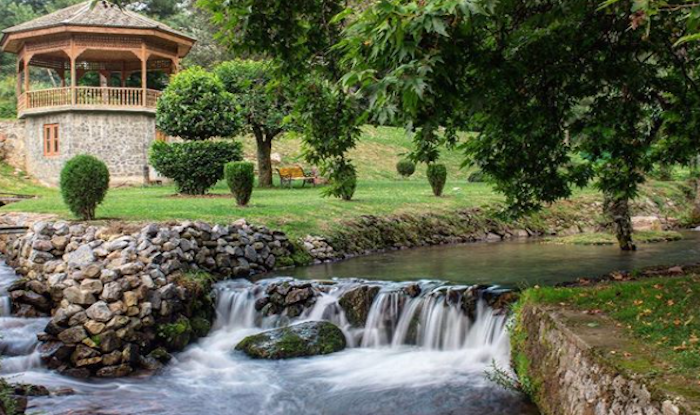
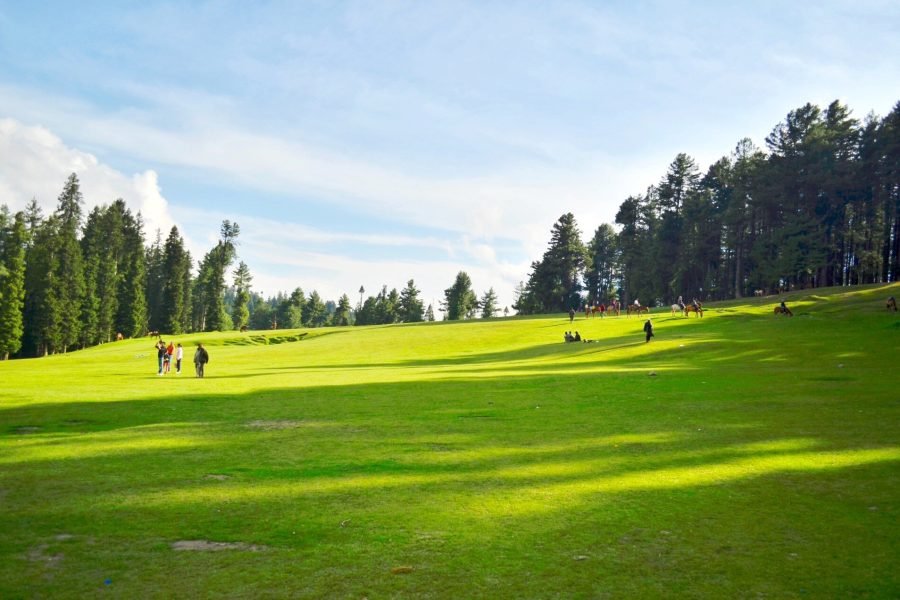
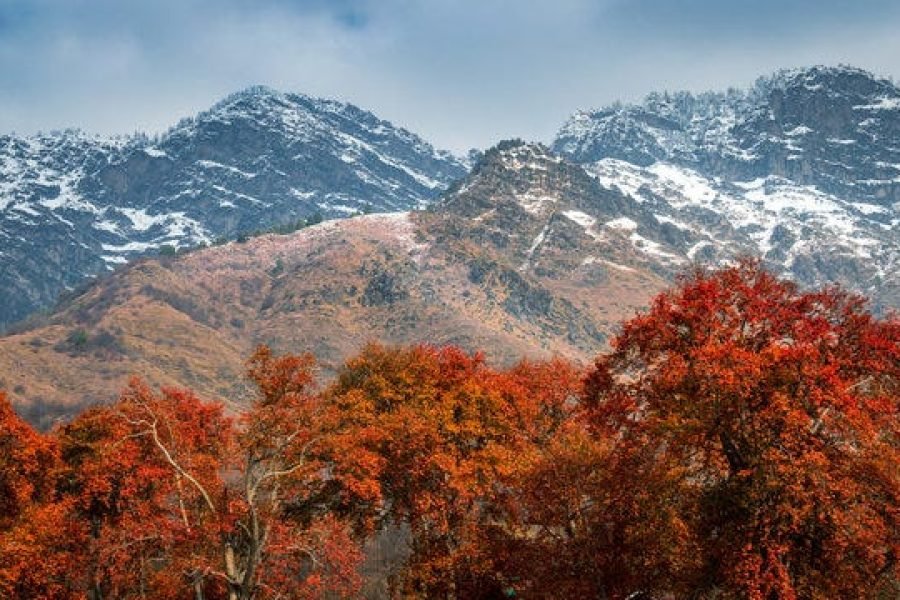
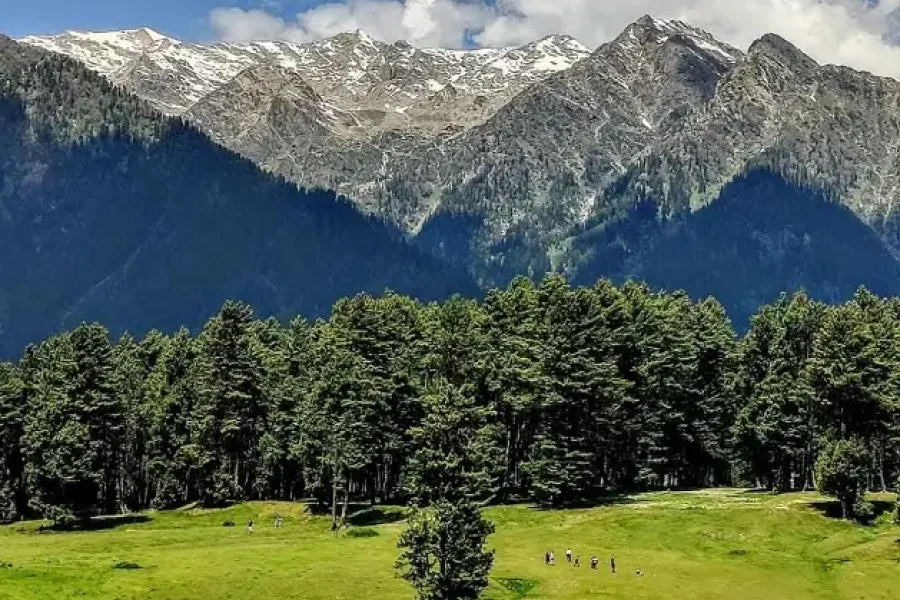
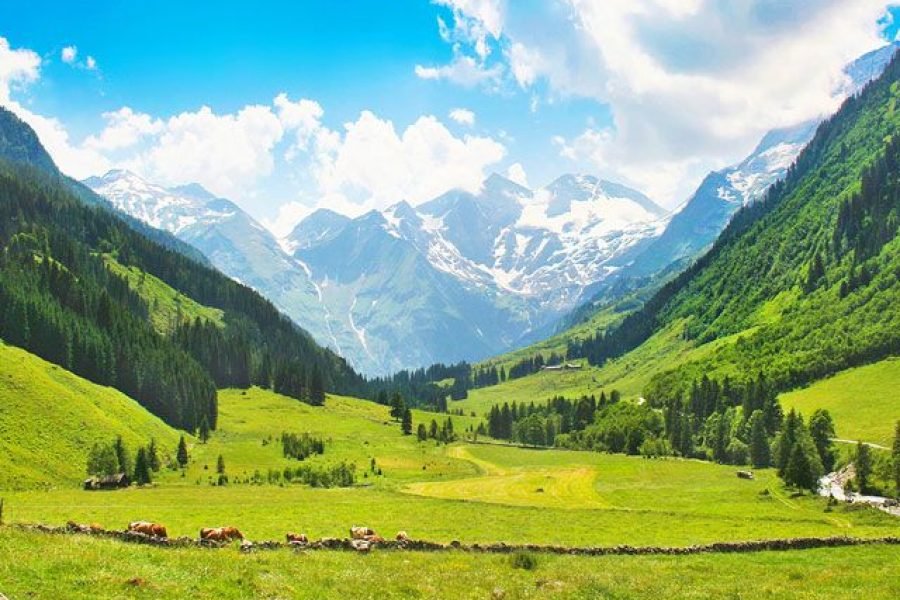
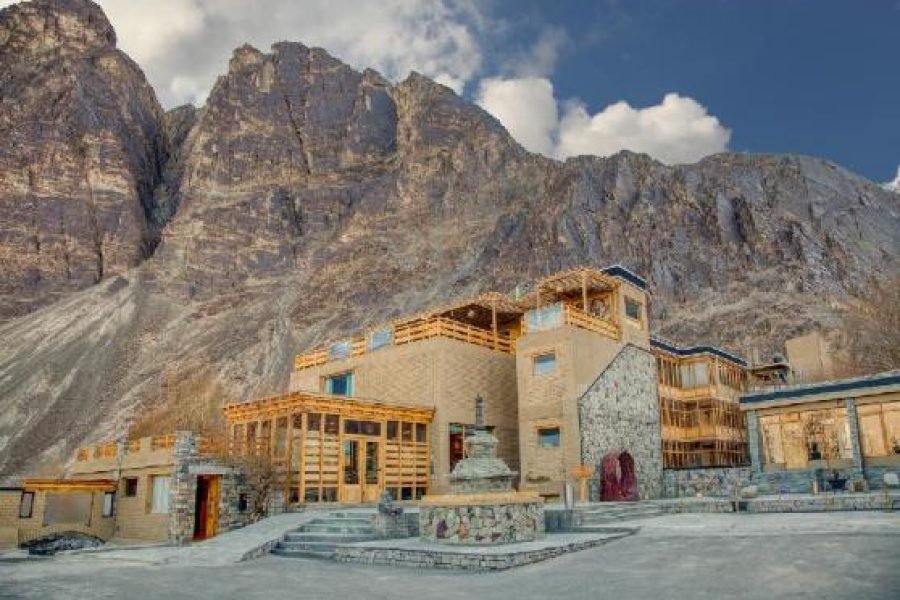
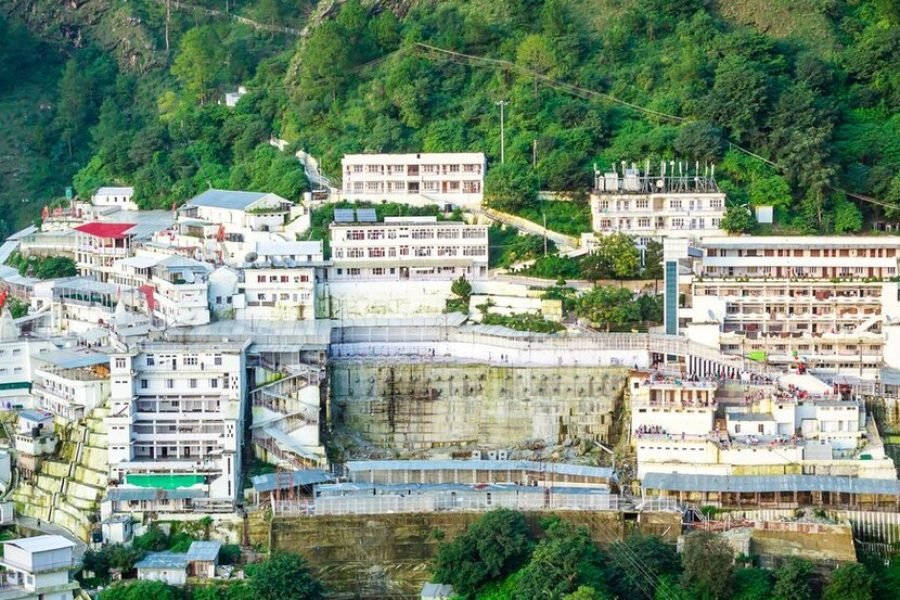
0 Comment